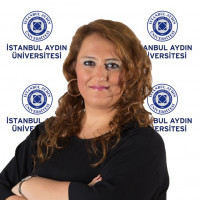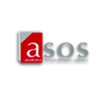Research Article
Review Article
Art and Literature
Aim & Scope
International Journal of Media, Culture, and
Literature is a peer-reviewed journal of Istanbul Aydın University
Department of Foreign Languages, edited by Professors Assist. Prof. Dr. Esma TEZCAN and Prof. Dr. Veysel Kılıç. The assistant editor is Lect. Sercan Karakaş.
IJMCL publishes original contributions from all over the world, informed by a variety of critical perspectives, including postmodernism, marxism, feminism and queer theory. It encourages global and interdisciplinary scholarship and welcomes
contributions from researchers, scholars and graduate and post-graduate
students who want to exchange ideas and participate in productive discussions about issues that animate literary, cultural, and media studies.
Author Guidelines
All contributions should be submitted via the Dergipark system. They have to be anonymous, not revealing the identity of the author(s). For questions, you can contact Dr. Özgür Bülent Erdoğan (ozgurbulenterdogan@aydin.edu.tr), Cemal Topcu (cemaltopcu@aydin.edu.tr) or Çağla Gurbet Erol (caglagurbet@aydin.edu.tr).
General Rules:
1. The language of the articles is English and Turkish
2. If there is an institution that supports the study, the last word of the article title should be marked with (*) and the institution information should be given in the footnotes of the same page.
3. Manuscripts should not exceed 12.000 words including references and annexes.
4. Articles should be organized according to the latest APA reference system. Please make sure that the in-text citations are given in the references.
5. Please include both English and Turkish abstract.
Editing of topics: All work submitted to our journal must have the following characteristics: Studies submitted as a basic spelling rule must be written in accordance with APA (6.0) style.
* Page Layout, entries must be written in a Microsoft Word program and the page metrics must be organized as follows:
Paper Size: A4
Portrait Top Margin: 3.5 cm
Bottom Margin: 2.5 cm
Left Margin: 2.5 cm
Right Margin: 2 cm
Paragraph Head: 1 cm
Block Quote: Left 1 cm
Font: Times New Roman
Font Style: Normal
Main Text Size: 11 point
Block Quote: 9 points
Footnote Text Size: 9 points
Inside the Table: 9 points
Paragraph Spacing: 6 nk
Line Spacing: Single (1)
Type of Font :
Times New Roman style should be used. Turkish Abstract and English Abstract should be in 11 pt, main text should be 11 pt. The main text, Turkish-English abstract and the sources used should be justify. Text should be written using single line spacing, 1 line spacing between paragraphs should be left.
Headlines:
The manuscript should be composed of main headings and sub-headings.
Main Title :
The main title should be Times New Roman, bold and in 14-pt format. Author name, abbreviations, author ORCID number and e-mail addresses should be written with two lines of space after the title and the name of the author should be written in 11 pt font size.
Abstract:
Abstracts should be in Turkish and English. Abstract text should use Times New Roman, should be in bold, 11 pt, justified, and in single spacing. It should not exceed 600 words. Keywords in abstract should be in italic, bold and 11 pt. At least three, maximum five key words should be written. In abstract, subject of the article, research method and result should be given.
Sections:
The article should include sections, and if necessary, subsections. Section titles (INTRODUCTION, THEORETICAL FRAMEWORK, LITERATURE REVIEW, METHODOLOGY, FINDINGS, CONCLUSION, etc), which are formed according to the content of the article, should be all uppercase, 11 pt and bold, and typed without numbering. Subsection titles should be 10 pt, bold and italic.
Main Text:
The main text should be written in Times New Roman 11 pt, single column, justified, and single spaced. The subtitle of the first section should start with a single line space after the keywords and there should be no spaces in the following paragraphs. Article length must not exceed 20 pages with shapes and figures.
Tables, Figures, Graphics and Pictures:
If the tables, figures, graphics and pictures used in the text are not originally created by the author(s), they can be used in the text by showing the “source”. Tables, figures, graphics and pictures should be placed to fit the text and the headings should be written in 11 font size and centered. Tables and graphs used in the text should be listed as Table 1., Table 2. / Chart 1., Chart 2. etc. and so on. Table numbers and titles should be written before the table. Figures, graphics and pictures of the numbers and the headers (figure, graphic and picture) then the bottom of the Figure 1., Figure 2. / Picture 1., Picture 2. etc. should be written as ordered. The first letters of the words used in the tables, figures, graphics and image titles should be initials large and the others are small.
Conclusion:
The title should be written in bold, 11 pt, capital letters and the text in 11 pt. Times New Roman style.
Ethical Principles and Publication Policy
Principles of Research and Publication Ethics
In scientific papers sent to IJMCL, the guidelines related to the Scientific Research and Publication Ethics of Higher Education Institutions, the recommendations of the International Committee of Medical Journal Editors and the International Standards for the Authors and Authors of the Committee should be taken into attention. Plagiarism, forgery in the data, misleading, repetition of publications, divisional publication and individuals who do not contribute to the research are among the authors are unacceptable practices within the ethical rules. Legal actions will be taken in case of any ethical irregularity related to this and similar practices.
a)Plagiarism: Placing the original ideas, methods, data, or works of others, partly or completely, without making reference to the scientific rules, is dealt with in the context of plagiarism. In order to avoid plagiarism, the authors should refer to the scientific rules in a manner that is appropriate and should pay attention to the references of all scientific papers in their research.
b)Forgery of Data: The use of data that does not exist or is modified in scientific research is data in the scope of forgery. Authors should analyze their data in accordance with ethical rules and without exposing them to a change in validity and reliability during the process.
c)Detortion: Changing the records or data obtained from the study, showing the devices or materials that are not used in the research as used, changing or shaping the research results according to the interests of the people and organizations that are supported are considered within the scope of distortion. The authors should be honest, objective and transparent in the information they provide in relation to the research process. They should avoid violating the rules of ethics.
d)Repetition: Presenting the same publication as separate publications without referring to the previous publications is considered within the scope of repetition of publications. The responsibility for the publication of the publications submitted for evaluation in another place or in the evaluation process belongs to the authors. The authors should refrain from repeating the original and original research and they should pay attention to submit their original and original research.
e)Divisional Publication: The results of a research are discussed in the scope of dissemination and disseminating the results of the research in a way that disrupts the integrity of the research and disseminating it in more than one way, and publishing these publications as separate publications. The authors should consider the integrity of the research and avoid the divisions that will affect the results.
f)Authorship: The inclusion of people who do not contribute to the research or not to include the people who have contributed is considered within the scope of unfair writing. All authors should have contributed sufficiently to the planning, design, data collection, analysis, evaluation, preparation of the research and finalization of the research.
Ethics Committee Approval
"Ethics Committee Approval" is required for the following researches. An approved “Ethics Committee Approval ” must be obtained from the institution where the author of the article is located. Researches requiring from the Ethics Committee Approval are as follows:
Any kind of researches carried out with qualitative or quantitative approaches that require data collection from participants using questionnaire, interview, focus group works, observation, experiment, interview techniques,
· Usage of humans and animals (including material / data) for experimental or other scientific purposes,
· Clinical researches on humans,
· Researches on animals,
· Retrospective studies in accordance with the Law on Protection of Personal Data,
Also;
· Stating that “Informed consent form” has been taken in the case reports,
· Obtaining and specifying the permission of the owners for the use of scales, questionnaire and photos belonging to others,
· Stating that copyright regulations are obeyed for the ideas and works of art used.
In these articles, “Ethics Committee Approval ” should be stated in the article. The articles should include the statement that Research and Publication Ethics are complied with.
Indexes
Citation Indexes
Journal Boards
Editor
Assistant
Editorial Board

Born in Istanbul, Nur Emine Koç completed her undergraduate education in 2002 at Istanbul University, Department of English Language and Literature, and her master's degree in 2005 from the same department. She completed her doctorate in Maltepe University, Social Sciences Institute, Department of Communication Studies in 2016. Koç, who also served as the assistant director of Foreign Languages, department and program head, translation office coordinator at Istanbul Aydın University; Language and Culture, Legal Translation, Written Media Translation, Consumer Society, Popular Culture, Reality Shows, Social Media and Mass Translation, Surveillance Society, Social Media, Education in New Media, Political Economy of New Media, Cinema and Literature, Literature Translation, Cinematographic Studies He is working on Globalization and Digital Labor. Nur Emine Koç, who has also been the editor of Istanbul Aydın University Foreign Languages, Media, Culture and Literature magazine since 2017, also has studies on digital diseases and translation studies. She has been working as the Vice Head of New Media and Communication Department at Istanbul Aydın University since November 2020.

Scientific Board

Born in Istanbul, Nur Emine Koç completed her undergraduate education in 2002 at Istanbul University, Department of English Language and Literature, and her master's degree in 2005 from the same department. She completed her doctorate in Maltepe University, Social Sciences Institute, Department of Communication Studies in 2016. Koç, who also served as the assistant director of Foreign Languages, department and program head, translation office coordinator at Istanbul Aydın University; Language and Culture, Legal Translation, Written Media Translation, Consumer Society, Popular Culture, Reality Shows, Social Media and Mass Translation, Surveillance Society, Social Media, Education in New Media, Political Economy of New Media, Cinema and Literature, Literature Translation, Cinematographic Studies He is working on Globalization and Digital Labor. Nur Emine Koç, who has also been the editor of Istanbul Aydın University Foreign Languages, Media, Culture and Literature magazine since 2017, also has studies on digital diseases and translation studies. She has been working as the Vice Head of New Media and Communication Department at Istanbul Aydın University since November 2020.

2002 yılında St. Petersburg Devlet Üniversitesi Doğu Araştırmaları Fakültesi Türk Filolojisi Bölümü'nden mezun oldu. 2000-2006 yılları arasında St. Petersburg Devlet Üniversitesi'nin Filoloji ve Doğu fakülteleri öğrencilerine Türkçe öğretti[1]. 2007-2008'de Columbia Üniversitesi Doğu Kültürleri Enstitüsü'nde (MEALAC) Türk edebiyatı okudu ve aynı zamanda Columbia Üniversitesi Sürekli Eğitim Okulu'nda okudu.
Bilimsel faaliyetlerinin yanı sıra Türkçeden edebiyat çevirmenliği yapmaktadır. Türk edebiyatının Rusçaya çevrilen eserleri arasında Orhan Pamuk, Nazım Hikmet, Sabahattin Ali, Bilge Karasu, Ahmed Tanpınar, Zülfü Livaneli gibi önemli çağdaş yazarların romanları yer alıyor. Türk kültür ve edebiyatının Rusya'da yaygınlaştırılmasının yanı sıra Rus yazarların Türkiye'de tanıtılmasıyla da uğraşmaktadır. 2008'den bu yana Rus, Türk ve Amerikan edebiyat dergileriyle eleştirmen ve edebiyat eleştirmeni olarak işbirliği yapıyor ve edebiyat ödülleri jürisinin çalışmalarına katılıyor. A. Avilov'un yönettiği “Orhan Pamuk'un Kayıp Şehri” belgesel filminin senaryosunun ortak yazarı (TV Kanalı “Kültür”, 2012). St. Petersburg Yazarlar Birliği üyesi. “Ak Torna” uluslararası Türk şiiri çevirileri yarışmasının ödülü sahibi (2012). Orhan Pamuk'un Garip Düşüncelerim (2016) adlı romanının çevirisiyle Yabancı Edebiyat kategorisinde Yasnaya Polyana Ödülü'nü kazandı.
Verilen dersler:
Türkçe
Genel çeviri teorisine giriş (Asya ve Afrika dillerine dayanarak)
dil felsefesi
modern dilbilimin temel sorunları
Türk edebiyat tarihi
Müslüman edebiyatlarının tarihi ve teorisi
Orta Asya Edebiyatları Tarihi
Edebi bir anıt olarak Kur'an
Türkçenin işlevsel sözdizimi (Türkçe)

Professor of English Language and Literature and a very long career in teaching at various universities in the region
All site content, except where otherwise noted, is licensed under a Creative Common Attribution Licence. (CC-BY-NC 4.0)







